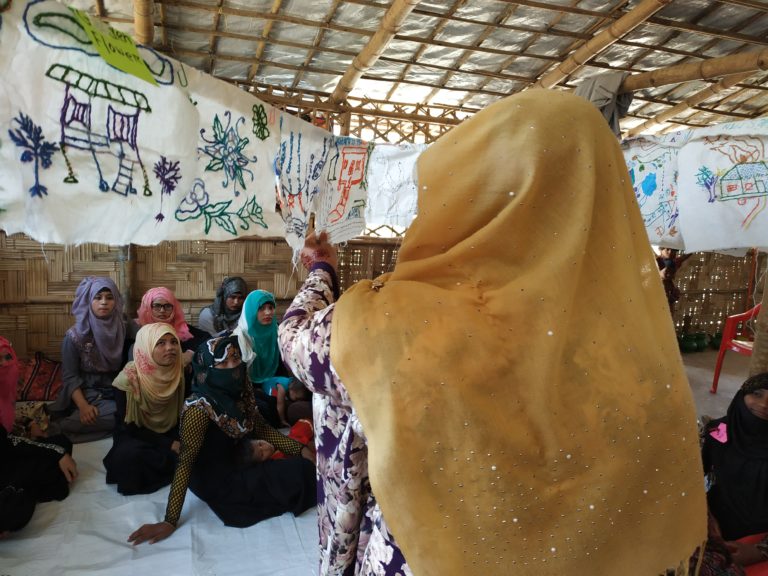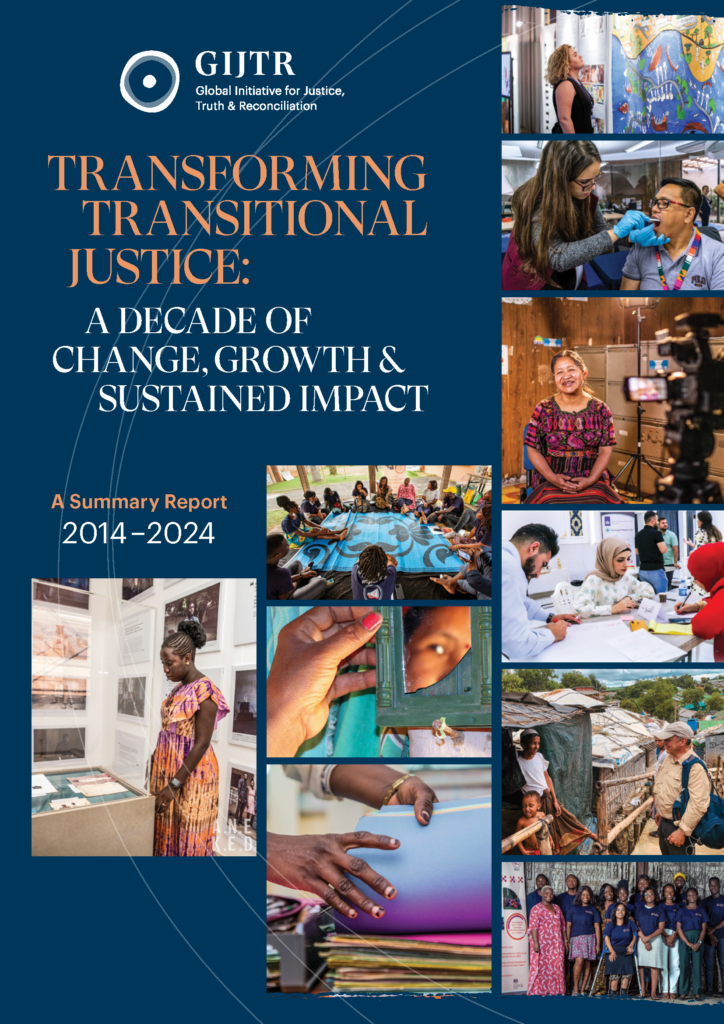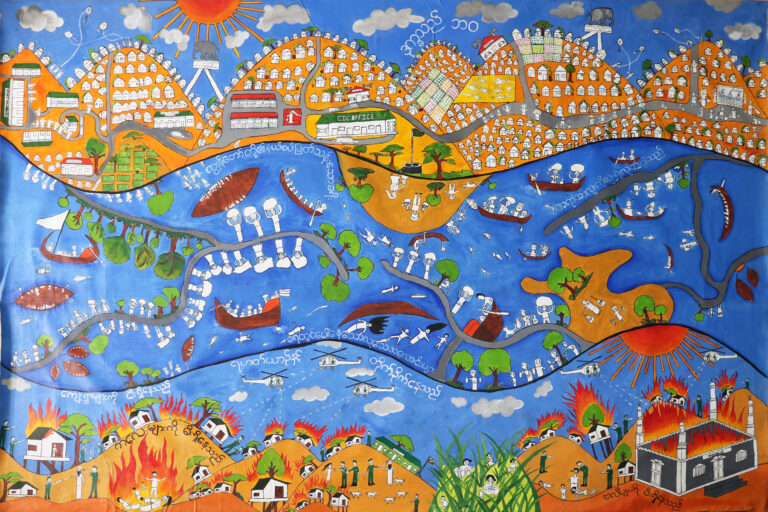Transforming Transitional Justice
In celebration of its tenth anniversary, GIJTR hosted “Transforming Transitional Justice: Innovative Approaches for Centering Communities to Lead Post-Conflict” in Barcelona, Spain from March 18-19, 2024. The gathering brought together over 90 representatives from more than 30 countries, including GIJTR Consortium partners, local partners, survivors, policy makers, donors and civil society representatives, to reflect on GIJTR’s impact within its first ten years.

In celebration of the tenth anniversary of the Global Initiative for Justice, Truth and Reconciliation (GIJTR), this gathering brought together GIJTR Consortium partners, local partners, survivors, policy makers, donors and civil society representatives, to reflect on GIJTR’s impact within its first ten years. Through addresses, panel discussions and interactive sessions, participants shared best practices and lessons learned as well as identified policy recommendations for ensuring that future transitional justice processes are as context-informed, locally driven, non-prescriptive and victim-centered as possible.
Held in partnership with the General Directorate of Democratic Memory of the Government of Catalonia, the event–like all GIJTR gatherings–served above all as a platform for connection and collaboration among survivors, civil society representatives and policy makers.

Transforming Transitional Justice
Published in March 2024, "Transforming Transitional Justice: A Summary Report" examines the ways in which GIJTR programming has impacted survivors, civil society, international fora and the transitional justice field in its first decade. The summary focuses on common impacts across GIJTR programs that have transformed the lives of tens of thousands affected by conflict worldwide, as well as the individuals and organizations seeking to support them. It is GIJTR’s hope that this summary will assist practitioners, civil-society organizations, policymakers, donors and others in the fields of transitional justice, peacebuilding and violence prevention in designing and supporting similar methodologies and mechanisms in the future.

Centering Communities Exhibition
"Centering Communities," is an in-person exhibition that runs parallel to the conference in Barcelona, and reveals the depth and breadth of GIJTR’s work across a decade of working in multiple countries, with different communities, each grappling with legacies of human rights violations. Items displayed represent multiple deep and trusted connections held by GIJTR with civil society and community-based organizations. The exhibit invites visitors to experience the momentum of GIJTR’s work across 10 years, as captured in the body maps that tell the life stories of survivors and paintings that illustrate the hopes for a peaceful future.

Transforming Transitional Justice
Over six episodes, you'll hear from local and international practitioners as well as survivors themselves who are rethinking how traditional transitional justice processes after a conflict can better serve the needs of civilians affected by periods of violence or authoritarian regimes.
Each episode will focus on common issues that post-conflict communities face - from helping victims heal from conflict-related sexual violence and bolstering communities' ability to search for their missing to documenting violations. But we'll explore these issues through GIJTR's unique, survivor-centered lens.
This six part series is coming soon, in April 2024.
As the founding partner of the Global Initiative for Justice, Truth and Reconciliation, the International Coalition of Sites of Conscience wishes to express its deepest gratitude to GIJTR’s Consortium partners and local partners for their dedication and expertise; to its donors, staff, consultants and member sites for their steadfast support; and finally to the thousands of survivors, victims, activists and community members who participated in GIJTR programming over the last decade for sharing their experiences, strength and hope in support of a more just and peaceful future.

Local Partner
GIJTR is grateful to its co-host and local partner for this event, the General Directorate of Democratic Memory of the Ministry of Justice, Rights and Memory, Government of Catalonia, which works for the recovery of memory by promoting the relationship with memorialist institutions from all over the world; organizing activities related to the recovery of democratic memory; calling for grants for the recovery of memorial heritage, scientific research and dissemination in the field of memory; promoting the location of missing persons during the Civil War and the Franco regime; locating the existing mass graves in Catalonia; managing the compensations to former political prisoners of the Franco regime, and advising the people who were retaliated against.
This General Directorate manages and coordinates the relationship of the Generalitat of Catalonia (Government of Catalonia) with the Democratic Memorial (an ICSC member), the Exile Memorial Museum Consortium (MUME) and the Ebro Battle Areas Memorial Consortium (COMEBE).
